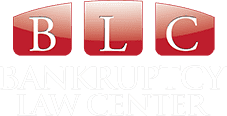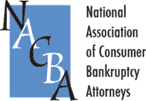In a case that could have a significant impact on San Diego and California bankruptcy clients, the U.S. Supreme Court is set to rule on an important issue related to Chapter 7 bankruptcy filers and their properties, when there are multiple mortgages on the property.
Mortgages and Bankruptcy
In the economic housing boom of 2007-2013 (or, as some would say, to the present day), many homeowners found their properties farther and farther “upside down,” meaning they owed more on their properties than the properties themselves were worth. In many cases, this was because of second mortgages (including home equity loans or lines of credit that were second to the primary mortgage).
Normally, when a debtor files bankruptcy and gets a discharge in a Chapter 7, they cannot ever be personally liable for the debt. However, the lien does not go away. In practical terms, this means the lender can still foreclose and take your property when your bankruptcy case is over; you just won’t have to pay them any money.
Under and Unsecured Liens
A new Supreme Court case could change this scenario for some borrowers. To understand the law and what the Supreme Court will be deciding, let’s take a hypothetical situation:
House Value: $220,00
1st Mortgage Loan: $200,000
2nd Mortgage Loan: $50,000
As you can see, the first loan is secured by $20,000. It is “under-secured.”
It has long been the law that a bankruptcy debtor cannot “strip down” that undersecured second lien to the property value. In other words, in our example, a debtor cannot have the second lien reduced to $20,000, thus “stripping off” the amount of the lien that exceeds the total value of the property ($30,000).
But now let’s look at another example:
House Value: $220,00
1st Mortgage Loan: $250,000
2nd Mortgage Loan: $50,000
Now, as you can see, the 2nd loan is not secured at all (“unsecured”)—the property is worth less than the first lien, and not a single penny of the value of the property is available for the second lien.
Two courts in Florida have ruled that in these cases, the second lien can be completely stripped. Because none of the second lien is secured by a dollar of value on the property, cases in Florida have held those debts to be no different than credit cards or medical debt—just completely unsecured debt.
Supreme Court to Determine Whether Liens Can be Eliminated
But that may change if the Supreme Court rules in favor of Chapter 7 debtors. The Supreme Court has agreed to determine whether completely unsecured second mortgages can be stripped off completely.
This is an important issue, because “stripping off” means that that neither the personal obligation for paying the note, nor the actual lien would exist. The practical benefit would be for borrowers who are in foreclosure when they file bankruptcy and then come out of bankruptcy and can pay or modify their first loan; in this case, they may not have to worry about the second loan. And if one day their property ever exceeds the value of the first mortgage, the second would not need to be paid off when the property is sold.
San Diego bankruptcy clients who are homeowners should keep a close watch on this case. If you’re a homeowner in San Diego and are considering bankruptcy, make sure you have attorneys that understand the most recent trends in the law. Let experienced San Diego bankruptcy attorneys evaluate your case and discuss with you the best and safest ways to discharge your debts. Contact the Bankruptcy Law Center for a free consultation today.







